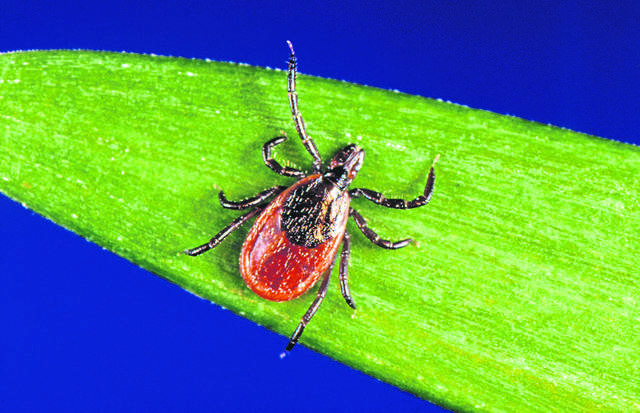A new nonprofit launched this week will focus on lobbying Congress to expand funding for the development of new drugs and diagnostic tools for battling Lyme disease.
The Center for Lyme Action launched on Tuesday in addition to hosting a congressional forum with lawmakers from Minnesota, New Jersey and California, along with Sen. Susan Collins (R-Maine), who gave a keynote address via video.
“The incidence of Lyme and other tick-borne diseases has exploded over the past 15 years,” Collins said in her video statement. “The TICK Act that I authored would apply a three-pronged public health approach to address Lyme and other tick-borne illnesses, establishing a national effort and providing much-needed investments to help slow the spread of these devastating diseases and better protect the health of more Americans.”
Lyme disease is the fastest-growing vector-borne illness in the United States, and Pennsylvania ranks first in the nation when it comes to Lyme cases.
The National Institute of Health earlier this month released a “Strategic Plan for Tick-borne Disease Research” to address the rising incidence of tick-borne disease and better understand the complex interplay between host, tick, and pathogens.
The number of reported cases more than doubled from 2004 to 2016, according to NIH data.
The plan’s five main priorities are:
• Improve the fundamental knowledge about tick-borne diseases;
• Advance research to improve the diagnosis of such diseases;
• Accelerate research to improve their prevention;
• Promote research to improve treatment of all tick-borne diseases;
• Support tools and resources to advance all of the above goals.
“Lyme is a frustrating and debilitating disease, but it’s a problem we can solve,” said Center for Lyme Action co-found Bonnie Crater. “What is needed is dedicated and sustained funding to research and commercialize a better way to diagnosis and treat this growing public health threat.”
Below, hear Bell Township resident Amy Wiester’s story of dealing with nearly a lifetime of Lyme disease’s effects.
Crater said the NIH report is a positive development given that NIH funding has been in decline for many years. In 2000, the NIH budget for Lyme was $2,117 per patient compared to $700 per patient in 2018, according to Crater.
Similar legislation in the House has the goal of creating a national strategy to address Lyme disease and other tick-borne diseases and disorders.








